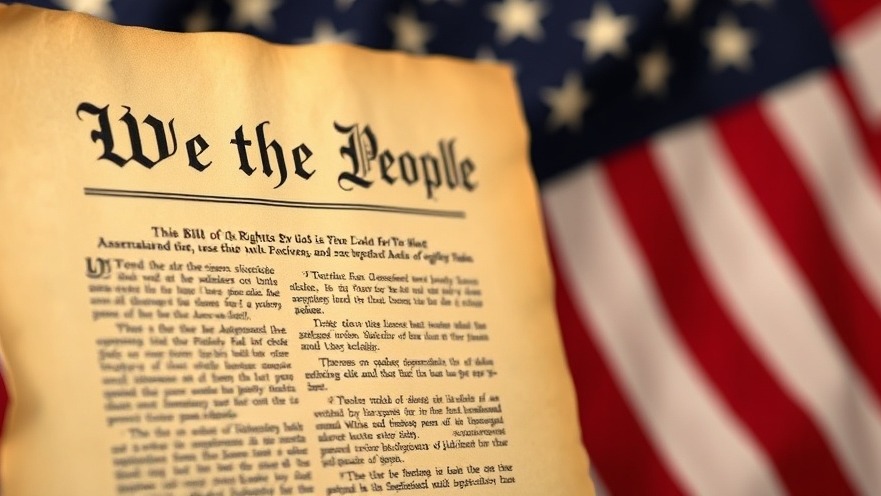
Understanding the Dangers of Unchecked Power
Power, a catalyst for positive change, simultaneously acts as a double-edged sword. As highlighted by Joe Byerly, unchecked power can morph into a destructive force, feeding selfish ambitions while eroding ethical boundaries. This concept is integral not just in historical contexts but resonates profoundly within military and corporate structures today.
The Perils of Power: A Historical Lens
Drawing from the insights in The Federalist Papers, James Madison emphasized the necessity of checks and balances to prevent tyranny from blossoming within governance. History serves as a tutor to today’s service members, encouraging vigilance. Whether it's a General or a business leader, the lessons learned from the rise and fall of leaders such as Julius Caesar underscore the importance of restraint in the face of authority.
Military Leadership and the Human Element
For active duty military personnel and their families, the implications of unchecked power extend beyond office politics into the battlefield. As explored in stories of valor from the military, the ability to resist the corrupting influence of leadership speaks volumes. When leaders act impulsively, the repercussions can be catastrophic, damaging unit cohesion and morale. Service members must foster an environment where accountability exists, and peer feedback is encouraged, reducing the chances of hierarchical egotism.
Counterarguments: Is Power Always Corruptive?
Some may argue that power can lead to noble actions. Leaders can inspire and create lasting reforms that benefit their units and communities. This perspective aligns with the stories of military heroism—the times when officers selflessly protect their soldiers under fire. A balance must be struck between embracing one's influence and remaining accountable, ensuring that ambition does not stray into hubris.
Preventative Measures Against Power Abuse
In both military and corporate environments, specific measures can be implemented to curb the dangers associated with unchecked power:
Institutional Checks: Similar to how military protocols guard against misuse of power, organizations should implement systematic checks to ensure accountability.
Communication Channels: Establishing open lines of communication can empower subordinates to voice concerns and foster a culture of transparency.
Mentorship Programs: Through initiatives like AristaValor, mentoring can aid veterans in their transition and help them navigate leadership roles effectively.
The Impact on Families and Community
As the loved ones of military personnel, families also bear the burden of leadership failures. The home front can become a battleground if power dynamics within family structures mirror those found in corporate or military settings. Open conversations about leadership challenges among families can foster understanding and resilience.
Conclusion: Examining Our Relationship with Power
As we navigate our own spheres of influence, it's essential to remain self-aware. The fight against corruptive power structures is ongoing, but through collective accountability and moral courage, we can lead with valor. Remember, the very thing that can elevate us might also lead to our downfall.
Join the conversation about leadership and power dynamics in the military and corporate sectors. Share your experiences to help illustrate the importance of ethical leadership.
 Add Row
Add Row  Add
Add 




Write A Comment